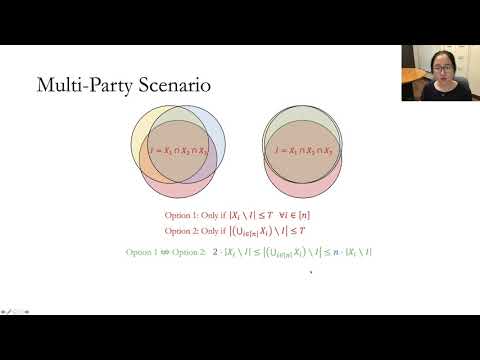CryptoDB
Multi-Party Threshold Private Set Intersection with Sublinear Communication
| Authors: | |
|---|---|
| Download: | |
| Abstract: | In multi-party threshold private set intersection (PSI), |
Video from PKC 2021
BibTeX
@article{pkc-2021-30975,
title={Multi-Party Threshold Private Set Intersection with Sublinear Communication},
booktitle={Public-Key Cryptography - PKC 2021},
publisher={Springer},
doi={10.1007/978-3-030-75248-4_13},
author={Saikrishna Badrinarayanan and Peihan Miao and Srinivasan Raghuraman and Peter Rindal},
year=2021
}

